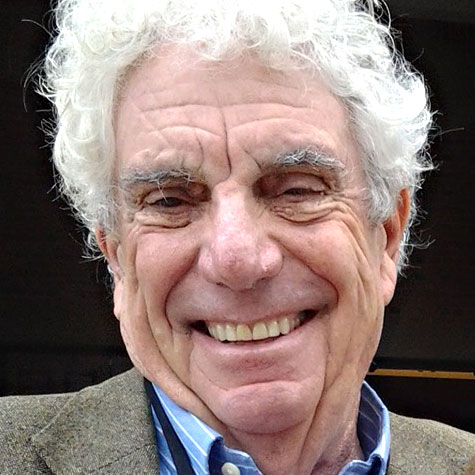Exploring the Pico-Robertson neighborhood, where Republicans once were the smallest of minorities, I happened upon a nest of recall supporters who were also great admirers of President Bush. Talking to them, I got a sense of the changing politics of Los Angeles’ Jewish community, where votes can no longer be taken for granted.
They were students of Netan Eli High School, seated around a table in the lunch-room, talking politics. I’d happened on the school the previous afternoon while looking for people to interview about the Oct. 7 election. I introduced myself to Rabbi Sholom D. Weil, the principal, and general studies principal Avi Erblich, and they were nice enough to set up a meeting with students.
Eight students were in the group: Yaakov Kurtzman, Yoni Celnik, Akiva Leyton, Mordechai Moadeb, Yosef Cohen, Michael Cohen, Daniel Mayer and Sam White. Joining us were the rabbi and Erblich.
Their school, with a student body of 30 young men, is traditional and Orthodox in its orientation. It was founded seven years ago by members of the Persian community, but in recent years has enrolled students from all parts of Jewish Los Angeles and now represents what Weil said is a cross section of the community.
Some had watched at least part of the debate the night before. "A lot of yelling," said White. "It made [Gov. Gray] Davis look good and that’s hard to do," Kurtzman said. "I liked how Arnold did," Maadeb said. "He’s an actor," Leyton replied. "He can play any role."
Remembering when Pico-Robertson was just as much a cinch to vote Democratic as the New York Yankees were to make the American League baseball playoffs every year, I was struck by the support of the recall by some of the more vocal members of the group, and the hostility toward Davis and Lt. Gov. Cruz Bustamante.
They seemed particularly riled over the way the full extent of the state’s budget crisis was not revealed by Davis until after the election. "There’s no excuse to lose that much money," Maadeb said.
Weil said, "after the election, he pulls something on us, this big, big deficit. He hid it during the election campaign. It was not a criminal act but morally speaking, it was immoral."
When I asked what they thought of Bustamante, the Democrats’ leading candidate for governor if the recall wins, the response was negative. "Do you want to vote for someone who wants to give California back to Mexico?" Mayer said.
He was referring to Bustamante’s association when he was a young man with MEChA, the Spanish acronym for Chicano Student Movement of Aztlan. Aztlan is a term used by some activists to describe the American Southwest, once part of Mexico, and MEChA rhetoric has spoken of reclaiming it.
When one student said the association occurred in Bustamante’s college days, Layton replied that people don’t "change much in 20 years."
What was most striking was the complete support for President Bush. There was no wavering, no doubts about the president. He was their man.
Elsewhere, I ran into other opinions. At Starbucks at South Robertson and Pico Boulevards, I chatted with Gary Manacher, an actor who does voice-overs. He was reading the morning papers — the Los Angeles and New York Times — when I interrupted him.
"I am categorically against the recall," he said. "If I have to live with Bush, I can certainly live with Gray."
A few days before, I visited Rabbi Robert Gan of Temple Isaiah in Rancho Park, west of Pico-Robertson. We talked in his study, where he was beginning to prepare his sermons for the High Holidays. The American Civil Liberties Union suit to delay the election until March was still alive and the rabbi was concerned with the issues it had raised.
If the recall moves ahead so swiftly, he said, it "leaves people out of the process and it is something we should be concerned with." Moreover, he said, "if you don’t like a person … vote him out next time." The recall process, he said, is "very scary."
Obviously, opinion in the once largely Democratic Los Angeles Jewish community is divided on the recall. Since I’m writing this more than a week before the election (we have early deadlines here at The Journal), I’m not going to be stupid enough to guess about the outcome.
But think beyond the recall. My conversation with the eight young men at Natan Eli High School indicated something. They were smart and well-informed. Their convictions were well-rooted and, as demonstrated by their feelings about President Bush, most friendly to the Republicans.
They may very well carry their beliefs through life, probably spreading them, as they move on to college, jobs, family and community life. Is this what Ronald Reagan used to call a prairie fire?
Bill Boyarsky’s column on Jews
and civic life appears on the first Friday of each month. Until leaving the Los
Angeles Times in 2001, Boyarsky worked as a political correspondent, a metro
columnist for nine years and as city editor for three years. You can reach him
at bw.boyarsky@verizon.net.





















 More news and opinions than at a Shabbat dinner, right in your inbox.
More news and opinions than at a Shabbat dinner, right in your inbox.